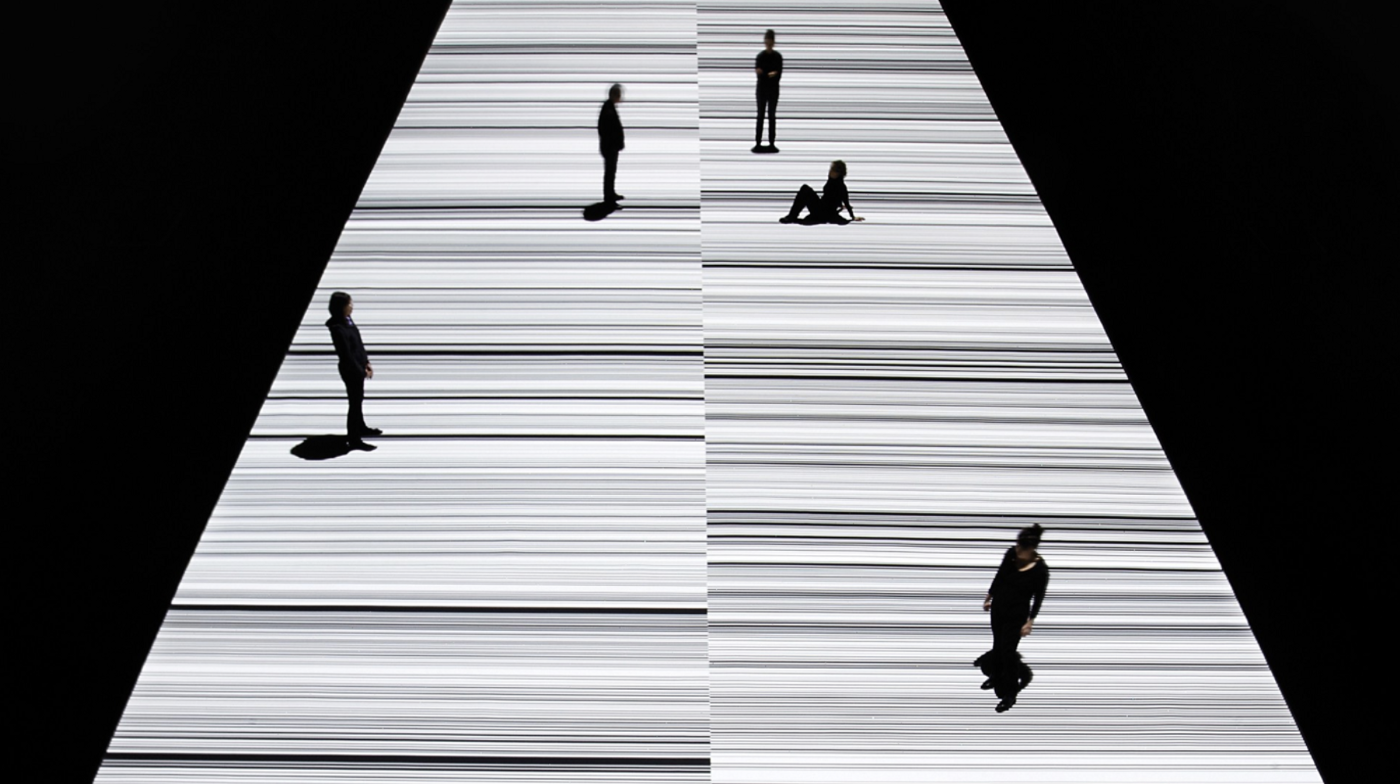Feature
‘Ryoji Ikeda: An Experiment in the Sonic Aesthetics of Data’
Feral Horses
A feature for Feral Horses on artist and sound designer Ryoji Ikeda. The article focussed on the artist’s oeuvre to date, beginning with his life as a DJ in 90s Japan, through his seminal ambient albums and more recent, immerse installations of sound and light.
Central themes to the feature were the increasing role of data and high-speed technology in our aural and optical unconscious, the limits of human perception, and the effects of these on new forms of nostalgia and futurism in contemporary art.

Extract —
“For us now time has all but disappeared. We are a generation and a world for whom time exists in the form of an imperceptible code; an infinite matrix of pre-sliced microbytes, manifested in a vivid acidity of light and data. Our contemporary sublime oscillates from nanobytes to fibre-optics, from the molecular to the cosmic. Glitches and convulsions stretch and pierce its fabric, corrupted .jpegs arriving in an endless alphanumerical code. The circulation and flows of information that coarse their way through the world’s silicon veins have produced not only a new ecology of signs, but a radically transfigured textuality.
The dehumanising nature of this post-phenomenological world—a frenzy of electrical signals, subatomic waves and quantum particles; of bleeps, blips and drones—has left many reduced to the anxieties and paranoia of a fully-fledged 21st century technological alienation. It is in this context that one of Japan’s leading electronic-music composers and visual artists, Ryoji Ikeda, is demonstrating his unique conceptual and aesthetic drive, executed with a high-tech and mathematical precision. Ikeda’s oeuvre has weaved between science, art, mathematics, music and more. Back in 1993 he became involved with Dump Type, an experimental Japanese theatre collective. Coming from a rather more pragmatist background in Microeconomics, this association radically accelerated Ikeda’s artistic sensibility as he produced mesmerising sound work for their provocative performances, a series of projects which became embryonic of what he would later pursue in his solo work.
After immersing himself further as a DJ in the Japanese techno scene of the 90s and fully acquainting himself with the new affects and aesthetic states that advances in technology were engendering, Ikeda went on to create album after album of daring, complex and challenging music: his 2001 release Matrix, a fragile and elegant ambient work which vacillates from the intensities of zero to infinity, was composed entirely of singular, pure sinewaves. At the same time producing large-scale artworks such as Spectra (2000), an immense declaration of the sublimity of light and sound that has toured the world, morphing and recontextualising itself in every site-specific location. It’s installation at Terminal 5, JFK International was as if it had been snake-charmed from Kubrick’s hypnotic unconscious itself.”
